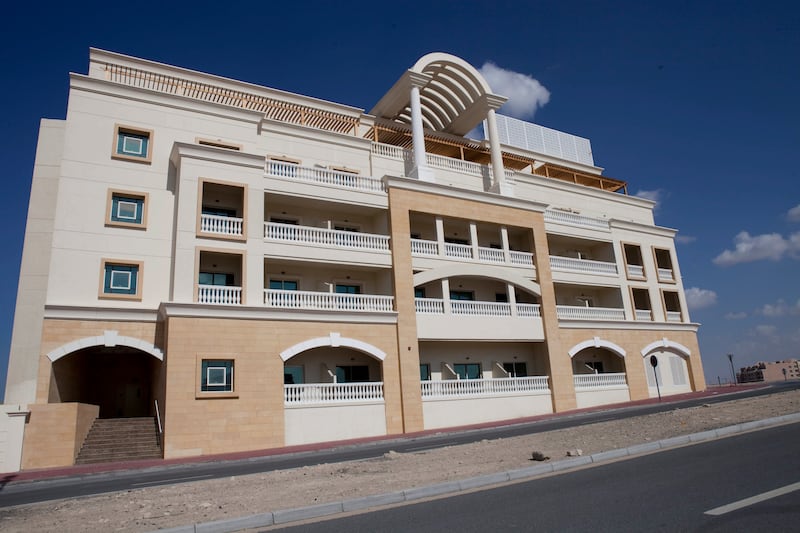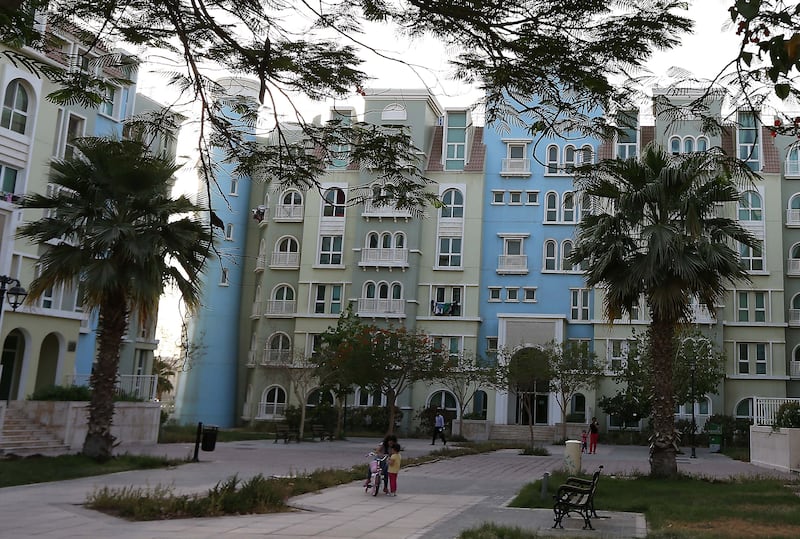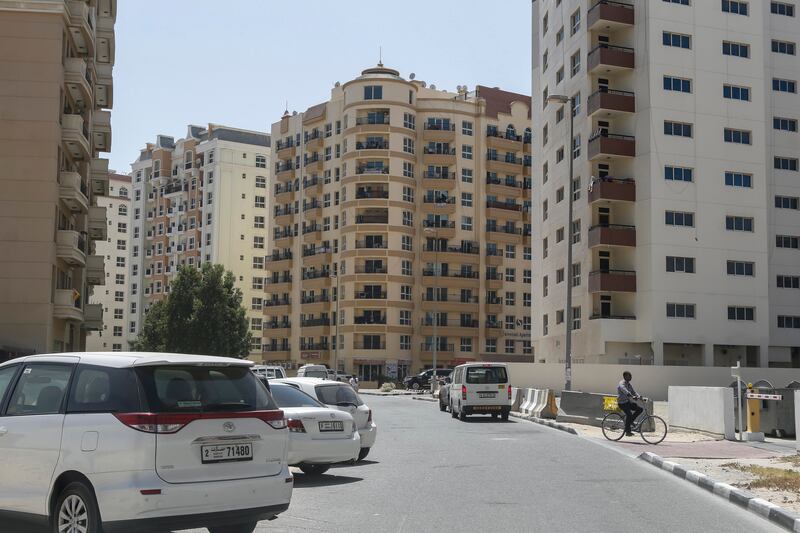People living in Dubai have criticised unscrupulous landlords who are manipulating rules to evict tenants — only to re-rent the homes at far higher rates.
The practice has become common due to a surge in rental rates since the end of the pandemic.
Dubai government regulations require landlords to serve an eviction notice of 12 months and then either move in themselves or sell the property.
Once they have evicted a tenant, they are forbidden from making the property available for rent for at least two years.
But some tenants have found their landlords advertising the same property for as much as twice what they pay.
In one complex in the Town Square development, seven people told The National that their landlords were trying to evict them.
In Dubai Hills and Damac Hills, where rents were low during the pandemic, many landlords are looking for 50 per cent more from tenants.
“We have seen cases where landlords are serving notices to their tenants and then straight away re-renting the property,” said Luke Remington, managing director of Haus & Haus real estate, one of the largest brokers in the city.
“The tenant can put a legal case in if this happens, but most tenants don’t want a legal dispute with the associated costs.”
Figures from September show the average annual rent for a villa in Dubai reached Dh268,758 ($73,171), while the average apartment soared by 27 per cent to Dh89,986.
Rent controls limit the amount that a landlord can charge a sitting tenant to between 5 per cent and 20 per cent a year.

But once the home is empty, there are no constraints on what can be charged.
Rent increases and decreases in Dubai are guided by the Real Estate Regulatory Agency (Rera), based on a rent calculator developed and operated by the authority.
“The rental calculator hasn’t been updated in the past two years — so if you check the calculator today it still shows the price from Covid times," said Mr Remington.
“A lot of landlords aren’t happy about this; they’re looking at the portals and seeing properties exactly like theirs being rented for 20, 30, 40, 50, sometimes even 100 per cent more.”
Mr Remington gave one example where the property rented for Dh250,000, but was re-rented at Dh400,000 as soon as the sitting tenant left.
"But it is worth remembering that many landlords did drop their rents during Covid to help tenants who were often losing their jobs or taking pay cuts.”
___________________________________________
Dubai's rent controls expected to change
Dubai's rent control system, or Rera index, uses an area-average system to estimate how much someone should be paying to live in their property.
It exists to ensure that tenants are protected from aggressive rent hikes by landlords, while offering owners a route to raise prices in a structured manner.
A landlord or tenant can enter their home address and it will give an estimate based on the surrounding properties.
A representative of the Dubai Land Department told The National that a tenant would only ever have to pay in line with the existing Rera calculator — which currently stipulates a maximum increase of 20 per cent.
He further said that any landlord who evicted a tenant and did not wait two years, until renting the property again, could be forced to return their tenant to the property and pay compensation. The representative said such cases were rare.
There is a light at the end of the tunnel though for landlords who feel they are not getting fair market value for their property.
Reports this week said that the area average system will be replaced with a valuation for the building.
The official said that the Rera index is being looked at, but could not confirm reports about the new system.
A full breakdown of how the Rera calculator works is here.
___________________________________________
On-the-move tenants find rents far higher
Greg Joiner, who rents a four-bedroom house in Dubai Hills for Dh115,000, was served an eviction notice in March this year.
When renegotiating his rent he informed his landlord that no increase was due, according to the Rera rent calculator.
“He asked me if I intended to stay for another year and I told him I did,” said Mr Joiner, from the UK.
“He then told me it would be my last year and he was serving me an eviction notice as he was going to move in himself.
“It will be quite easy for me to check up on the transactions online to see if he’s put the property up for rent or not after I’ve moved out.”
However, he said the eviction has left him, and his family, with a much bigger problem.
“We’re definitely going to have to rent a smaller property somewhere else as it will be impossible to rent something similar close by,” he said.
“It’s going to affect both my work commute and what school my child goes to.
“The landlord wanted to increase the rent because he said his costs had gone up, which is fair enough, but my wages were still the same.
“As a result now I am going to be much worse off.”
_____________________________________
Where to live in Dubai — in pictures
___________________________________________
'Landlords often at the mercy of the market'
Mario Volpi, sales and leasing manager at Engel & Volkers and a columnist for The National, said it was important to understand a landlord's position.
“The Rera rental calculator is too rudimentary in its current form to reflect the true value of a property when a tenant is already in situ,” said.
“Landlords are looking at other ways to somehow try to get fair market value for their properties.”
"I had one client who gave his client an eviction notice and intended to sell it,” said Mr Volpi.
“But in the [12 months that followed], the markets changed which meant he would have lost a lot of money by selling it.”
He said in such cases a landlord could ask the tenant for a letter of no objection to allow them to rent the property out again, however likely it was that such a letter would be forthcoming.
Another tactic being employed by landlords, hoping to get a higher rate for their property, was to get the property revalued and then ask the tenant to pay up based on the new valuation, rather than the Rera calculator.































